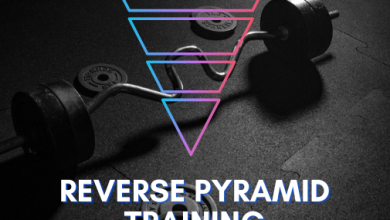Managing the stress of trying to get fitter: part 2
Cont. from part 1
Exercise can increase energy and help make you wildly healthy and strong, but only if you have energy to exercise intelligently for your needs, and have focus and attention to put towards it. Mental energy costs. Paying attention to a new habit, new exercises, new plans, new goals, an addition to your schedule, new gym……….all of that costs energy. Mental energy and physical energy.
Chronic stress works against the positive benefits of exercise stress. Because its all about energy. Give and take, and give and take. What decides whether one person works out and gets fitter, and another works out and never really changes much? One factor, a big one, is how aware they are of stress in their life and how they manage it. It is overwhelming the most important factor, after baseline genetics. For simply getting fit and healthy, genetics doesn’t matter much. Your personal frame, background, hereditary influences etc, are there to inform you about yourself. After that, it’s how you manage yourself.
A lot of other things matter too, including having a plan, finding guidance, committing to a goal etc, but the first factor in physical change is; stress management.
And that starts with your life. Not the gym.
When you get used to working harder, physically and can do things not previously done, we say “Oh, I’m getting fitter.” This is the point of all exercise. To become more able. To enable yourself to do more physically, through a physical practice.
To get fitter, you first need to put yourself in a position to accurately think about your lifestyle as a whole.
Sounds like a lot of work right? Well it is.
But awareness is not a to do list. It is a choice to pause and apply conscious thought in one direction, and choose to do it everyday.
Awareness is something to expand, not something to accomplish.
To be aware of the state of your body, on any given day, is to begin everything else that leads to being more fit, to seeing actual physical results. To performing better. To doing actions that lead to changes. To knowing what you need to do, and then figuring out how to do it.
Coaches of elite athletes, track the stress an athlete is experiencing in their training and their life, to keep them as “fit”, and able as possible.
Sprint coach Stuart McMillan calls this “never more than 15% off peak performance”. The job of an athlete is to stay as close as possible to optimal “fitness” for performance. This is the purpose of programming. To give structure to the unavoidable ebb and flow of any living organism. A “fitter” athlete, is one that is more able to perform at a high level (relative to their age in the sport). Programming is meant to bring awareness to what is going on inside the body and manage, as best as possible, what type of performance can be expected at a given time (didn’t peak for the Olympics? Oops!). Books and books are written on programming and cycles. Why? To bring clarity to the phenomenon that is improvement in physical endeavors and physical performance.
Note: “Being fit” at any one point in time, is always relative. It’s always relative, because you are alive, and are a constantly changing and evolving organism, that is subject to both time (aging) and stress (anything in your life that has an effect on you).
But what about average people?
Normal, average, exercising, populations?
The same applies. To be able to do more, to be able to handle more stress, and improve from the increase, is; to get fitter.
This is where we end up back at awareness. Awareness is a word we all hear, but what it means accurately knowing what has occurred through conscious observation. If you close your eyes, and type a word, you can open your eyes and KNOW you typed it by looking at your screen. You can connect the action of your hands with the appearance of the word on the screen.
How did you type the word?
In-between the choosing to type, and the action of typing that produced the word, nice little complex sets of instructions flowed from brain to hand to brain to hand, etc. Except, you didn’t have to sit and think of every step required for typing that word, because once upon a time you learned to type. Whether it was with two fingers looking down, or expertly at 90 words per minute; you had to learn it. And learn it you did, some way, some how.
Everything you do in your day, every action you take, is learned. And yet, to be consistently, accurately and fully aware of every waking moment of our lives…..well it’s the goal, but its hard. It’s imperfect. It is technically impossible to be aware of everything, but it is possible to be aware of yourself. It takes effort. It takes energy.
What gives you energy? Sleep. Good food. Healthy social interactions. And exercise.
But let’s back up from that daunting task of being perfectly aware all the time, and instead ask a practical question:
How would you know when you’re chronically stressed (bad) also known as “not recovering well”?
Regardless of how we “feel” we are balancing stress, and relying solely on our perception (which can come with inaccuracies), we can use very accurate physical measures of “how our body is experiencing our life” and use that to help ourselves be aware of what affects us negatively and remove some of our own bias.
What can we measure to help us accurately see how we are handling stress based on research done in the realms of human physiology, biology and psychology?
1.) Resting heart rate – higher heart rates are correlated with poor cardiovascular fitness, elevated stress response (“Type Aish”) and higher mortality (chance of death) (1,2,3,4). What’s your current resting heart rate? Check.
2.) Nervous habits – they waste energy, keep the nervous system in a “on” state. Do you have one? When? Why? What have you noticed about what makes you nervous, irritable, “stressed out”?
3.) Mood – big fluctuations in mood, desire, motivation, depressing or helpless thoughts, and absence of “desire for life” are indicators of poor stress management. Are you aware of your moods? Do you notice your own ups and downs accurately? (5,6,7)
4.) Sleep quality – sleep is essential for psychological and physiological health. (8,9,10,11,12,13,14,15, 16)
How many hours do you get? How do you know you’re getting what you need? Too much? Too little? Do you fall asleep easily (big one)? Do you stay asleep? Do you feel rested when you wake?
5) Sexual appetite – an absence of sex drive, inability to orgasm, etc can sometimes be indicators of poor stress management, and overall psychological and physical health? Think about yours.
I guess what this comes down to is; you want to get fitter? Start with figuring out how well you know yourself and what you do. Get interested.
Note: I feel it is a responsibility to provide a cautioning statement against making broad, general or potentially dangerous assumptions about your self and your health. Awareness of ones self does not necessarily mean you will have the education, expertise or objectivity to come to conclusions about your health, or your body, if something is wrong. Self awareness is the start, and allows medical professionals to help you better. If you feel you are suffering poor health for a specific reason, please talk to a medical professional.
(A small sampling of the research support):
1.) https://www.ncbi.nlm.nih.gov/pmc/articles/PMC3664385/
2.) https://www.ncbi.nlm.nih.gov/pmc/articles/PMC4754196/
3.) http://www.health.harvard.edu/blog/increase-in-resting-heart-rate-is-a-signal-worth-watching-201112214013
4.) http://www.health.harvard.edu/staying-healthy/understanding-the-stress-response
5.) https://www.ncbi.nlm.nih.gov/pubmed/2287264
6.) https://www.ncbi.nlm.nih.gov/pubmed/11665914
7.) https://www.ncbi.nlm.nih.gov/pmc/articles/PMC4410348/
8.) https://www.ncbi.nlm.nih.gov/pubmed/15133379
9.) https://www.ncbi.nlm.nih.gov/books/NBK19961/
10.) https://www.ncbi.nlm.nih.gov/pmc/articles/PMC3902880/
11.) https://www.ncbi.nlm.nih.gov/pubmed/22654183
12.) https://www.ncbi.nlm.nih.gov/pubmed/28579842
13.) https://www.ncbi.nlm.nih.gov/pubmed/18091688
14.) https://www.ncbi.nlm.nih.gov/pmc/articles/PMC1859073/
15.) https://www.ncbi.nlm.nih.gov/pubmed/2657963
16.) https://www.ncbi.nlm.nih.gov/pubmed/25323481


